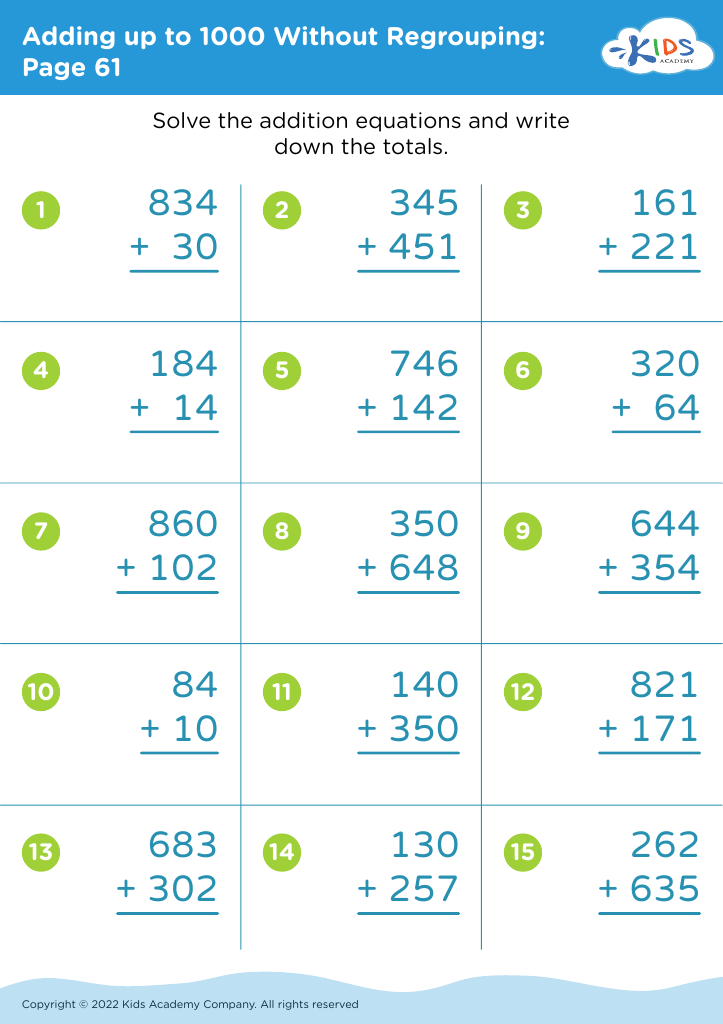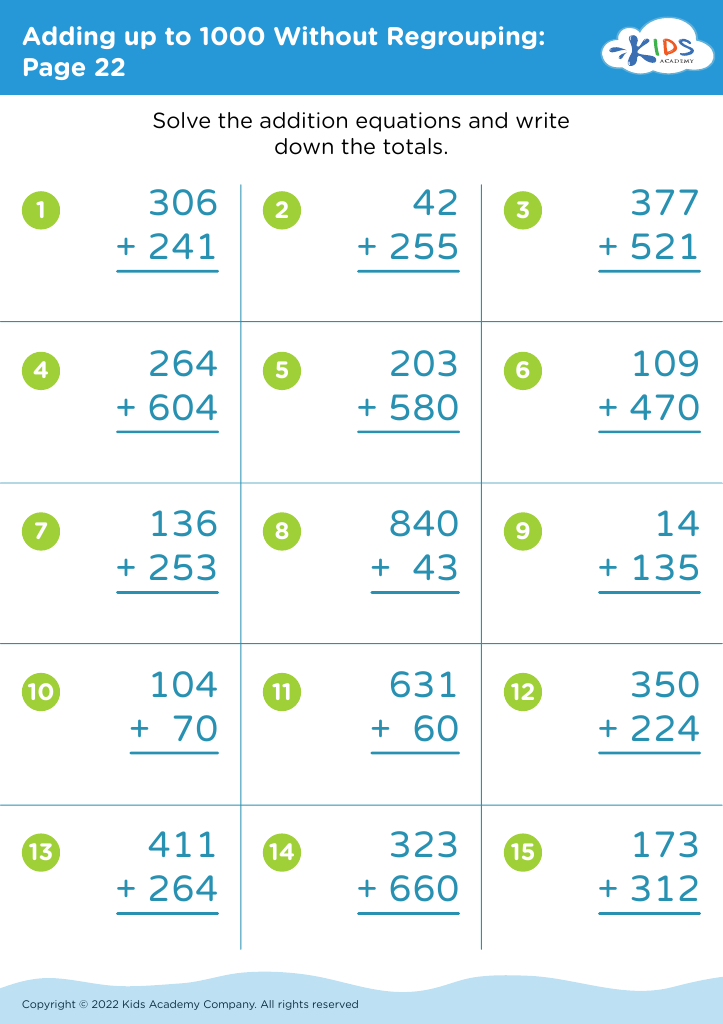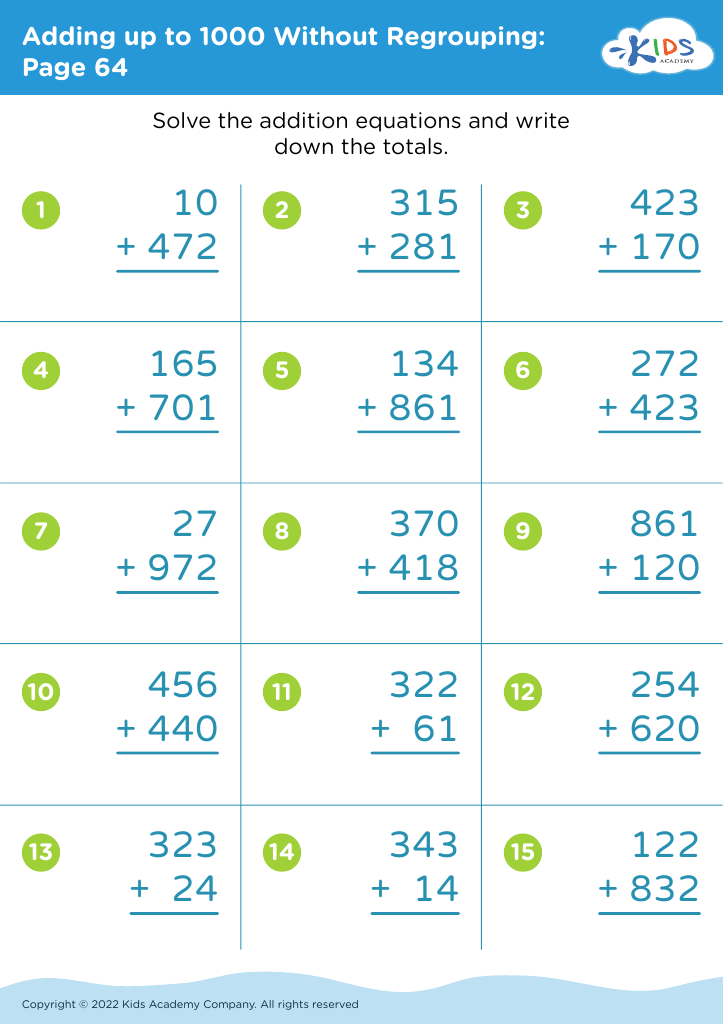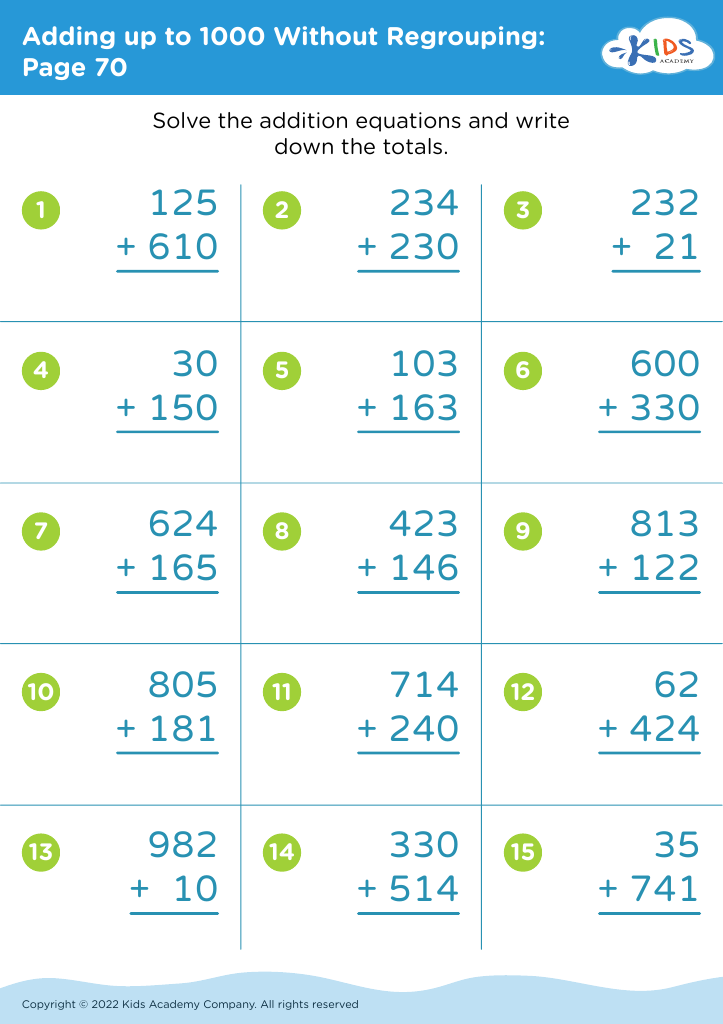Counting skills Adding up to 1000 Without Regrouping Worksheets for Ages 3-7
10 filtered results
-
From - To
Unlock the magic of numbers with our Counting Skills Adding Up to 1000 Without Regrouping Worksheets, specially designed for children aged 3-7. These engaging, printable worksheets help young learners build foundational math skills through fun activities focused on counting and addition without regrouping. Each worksheet offers a variety of exercises that enable kids to practice their addition skills in a playful, stress-free environment. As they progress, children will gain confidence in their ability to work with numbers up to 1000. Perfect for home and classroom use, these worksheets promote independent learning while ensuring a strong math foundation for future success!
Counting skills, particularly the ability to add up to 1000 without regrouping, are foundational for children's mathematical development. For ages 3-7, mastering these skills fosters confidence in young learners and lays the groundwork for more complex arithmetic operations. Understanding how to count and perform basic addition enables children to grasp the concepts of quantity and value, which are crucial in their daily lives – from simple tasks like counting toys to understanding money.
Parents and teachers should care about fostering these skills because early mathematical competence is linked to future academic success. Engaging in counting activities helps cultivate critical thinking and problem-solving abilities. Children learn to recognize patterns and make connections, which enhance their cognitive development.
Moreover, cultivating counting skills promotes perseverance and positive attitudes toward learning. When children see their progress, such as reaching 1000 through addition, they build self-esteem and motivation. Engaging with numbers can also stimulate language development as children express their thought processes. Involving parents in these activities encourages a supportive learning environment, reinforcing the idea that learning is exciting and collaborative. Ultimately, nurturing counting skills during these formative years sets the stage for lifelong learning in mathematics and related fields.




















